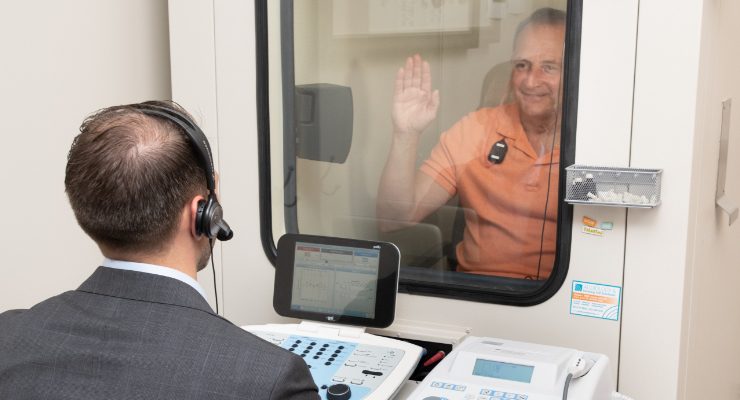
When you start to experience hearing loss, it is important that you get the correct solution for your needs. This can be easier said than done, but nonetheless it is the kind of thing that you will want to focus on as best as you can. As it happens, there are many common solutions that people will consider when they have hearing loss. One option that you might have heard of and might be wondering about is the over-the-counter hearing aid.
In this post, we are going to fully discuss over-the-counter hearing aids, and go through some of the reasons why you might not want to get one. As you will find out, it is generally best to go to an audiologist and get a hearing aid through prescription, rather than over-the-counter (OTC). Nonetheless, let’s take a look at this option right now and find out more about it.
What is an Over-The-Counter Hearing Aid?
So, first of all, the basics: just what do we mean by an over-the-counter hearing aid? Quite simply, this is a hearing aid that you are able to buy without first having a prescription in place. You can go to a pharmacist or even some stores and pick up a hearing aid. The Food & Drug Administration recently established OTC hearing aids as an official category of hearing aid. You can probably see why this might be an attractive prospect to some people. After all, it is useful to be able to just go and get a hearing aid for your needs right now, and that’s something that you might find yourself wanting to do.
However, there are downsides to this approach, as we will see shortly, and in general it’s much better to get your hearing aid through the proper channels, through an audiologist who knows what they are doing and can prescribe you with the right one for your needs.
The Problems with Over-The-Counter Hearing Aids
So, what are some of the major problems that you might run into when you get an over-the-counter hearing aid rather than a prescription one from your audiologist? There are a few in particular that you might want to be aware of, so let’s now list some of the most important that you should ideally know.
Not As Trustworthy
Most of all, these OTC hearing aids are just not quite as trustworthy as many other types, and you can never be sure that they are going to suit your needs or even work properly. Often, they will be made of cheaper materials and are much more likely to break apart.
Not Fitted to Your Ear
Also, an over-the-counter hearing aid is not going to be fitted to your own ear, as you would get with a prescribed one from the audiologist. Because of this, you might find that you struggle to be comfortable when you are wearing it, or it might even cause you discomfort if it is particularly unsuitable for your ear shape and size. With an audiologist-fitted hearing aid, this is not going to be a problem.
A Blunt Tool
In general, it really is a blunt tool to go and get a generic hearing aid over the counter, rather than having one prescribed for you personally. You might find that it helps your hearing somewhat, but probably not to the degree that you would expect from a proper hearing aid from an audiologist, so you are just not going to get the same kind of results. OTC hearing aids are used for self-perceived mild-to-moderate hearing loss. When seeing an audiologist, you will be able to get the proper diagnoses of the severity of your hearing loss.
The best approach, as we have said, is to go to your audiologist and have them prescribe you a hearing aid just for you. They will take you through a full hearing examination, so you can discover what kind of hearing loss you actually have and then give you the appropriate solution. They will also be able to help you with understanding your hearing aid and knowing how to care for it. Talking to an audiologist about OTC hearing aids and prescription hearing aids, will help you decided which might be the best for you and your needs.
To find out more about this service, or to book yourself in for a hearing aid fitting, get in touch with your audiologist as soon as possible. You can contact Audiology & Hearing Aid Solutions at (973) 721-6520 and (201) 375-9081.



